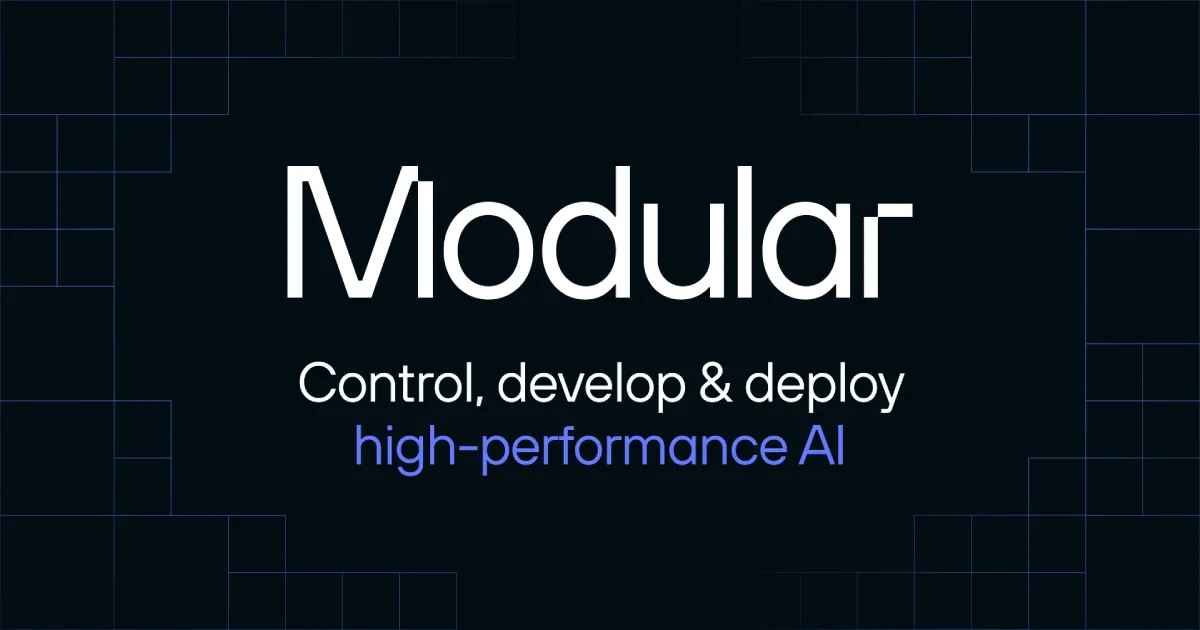Modular raises $250 million at $1.6 billion valuation to challenge Nvidia in AI software

Modular, an artificial intelligence startup founded by former Apple and Google engineers, announced Wednesday that it has raised $250 million in a funding round valuing the company at $1.6 billion. The latest financing nearly triples Modular’s valuation from two years ago, underscoring investor confidence in its efforts to loosen Nvidia’s grip on the AI computing market.
The round was led by U.S. Innovative Technology Fund, with participation from DFJ Growth and existing backers including GV, General Catalyst, and Greylock.
Founded in 2022, Modular has built a platform that allows developers to run AI applications seamlessly across different types of computer chips, eliminating the need to rewrite code for each one. The company already counts cloud providers such as Oracle and Amazon, as well as chipmakers Nvidia and AMD, among its users.
Nvidia currently controls more than 80% of the high-end AI chip market, thanks in large part to its proprietary CUDA software ecosystem, which ties over 4 million developers to its hardware. Modular is positioning itself as a neutral “Switzerland” in the space, offering an alternative software layer that works across vendors.
“Our goal isn’t to push down Nvidia or crush them,” said Chris Lattner, Modular’s co-founder and CEO. “It’s about enabling a level playing field so that other people can compete.”
The company plans to sell its software directly to enterprises on a usage-based model and through revenue-sharing partnerships with cloud providers. This strategy has resonated with investors who believe the AI market is heading toward a multi-vendor future.
“Modular is trying to create the AI hypervisor that will allow you to port workloads across different vendors,” said DFJ Growth partner Sam Fort, likening the startup’s role to VMware’s in the early days of cloud computing.
With about 130 employees, Modular intends to use the fresh capital to expand its engineering and go-to-market teams. The funding will also support its push into the AI training market, broadening its scope beyond AI inference, where it is currently focused.





